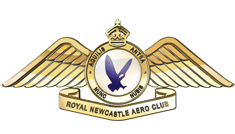The Royal Newcastle Aero Club offers Emergency Manoeuvre Training as a separate stand-alone course and is of great value to any pilot (GA, RA or glider). The course is mandatory before commencing formal aerobatics training. The course is aimed to prevent the same old accidents happening time after time and is very practical. In accordance with the aerobatic syllabus, the Royal Newcastle Aero Club can tailor the course to suit each pilot’s individual requirements.
All emergency manoeuvre training is carried out in a Decathlon, but is designed to be completely transferable to other aircraft types. EMT is a course in defensive flying training and is far more than just spin training.
In brief, the course covers the following practical situations and issues:
For more information, contact RNAC on (02) 4932 8888.
This rating is a simple type of instrument rating. It used to be called a Class IV Instrument Rating.
There are two views on the intention of this rating:

Basically, this rating allows a flight to be conducted at night when forecast weather conditions are good enough to allow the flight to be operated at or above a safe height (LSALT) while maintaining VMC (Visibility and Cloud Separation). Weather forecasts will often prevent flight under the NFVR, as the forecasts are often conservative.
For more information please contact RNAC on (02) 4932 8888.

The command instrument rating allows the holder to conduct flight through instrument meteorological conditions, giving the holder more opportunity to conduct a flight when conditions don’t permit VFR flight. This rating involves training to conduct enroute navigation and instrument approaches on all aids including NDB, VOR, ILS and GNSS. The holder can conduct all IFR activities during the day or night and carries the privileges of a night VFR rating.
This course includes briefings on all approaches, 20 hours of simulator time and 20 hours in the aircraft.
Students can complete this training in their own aircraft or ours.
For more information please contact RNAC on (02) 4932 8888
The private instrument rating allows the holder to fly under instrument flight rules enroute and conduct approaches that they have been trained and approved to conduct. The initial private IFR rating allows the holder to conduct NDB/VOR as well as GNSS enroute navigation, as well as add on endorsements to conduct various approaches. Unlike the command instrument rating, each approach is an individual endorsement and requires testing before it is added to a license, including if it can be conducted during nighttime.
This endorsement is beneficial for someone who wants to take off VFR and climb through the clouds enroute to their destination.
This course includes briefings on relevant approaches and enroute navigation, 10 hours of simulator flying and 10 hours in the aircraft.
Students can conduct this training in their own plane or ours.
For more information please contact RNAC on (02) 4932 8888


BAK and PPL Courses are held throughout the year so please give us a call & we will update you on our next course.
Theory courses consist of four full days for the BAK, six full days for the PPL – generally over two or three consecutive weekends, but this can be tailored depending on the participants. Student Pilots enjoy the small class sizes, meeting others who are at the same stage of their flying training, and find it much easier to complete the theory component without it becoming an obstacle to completing their licence.
For more information please contact RNAC on (02) 4932 8888.

Please select a template first
